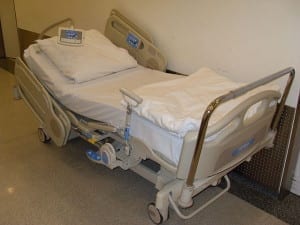Transitions of care is an extremely vulnerable time for patients. Patients can be easily overwhelmed due to different medications, new diagnosis, new location, new people, and multiple things to learn. As healthcare professionals, it is easy to get into your work groove and forget to put ourselves in the shoes of our patients.
Hospitalization is one of the most stressful situations a patient can go through. Imagine that you have some chest pain, get admitted to the hospital, and newly diagnosed with a myocardial infarction (heart attack). If you make it through this situation and get discharged home, how would you feel, and what would your priorities be?
I think when we are educating these patients we forget an important aspect. They are people, they have lives, families, commitments just like the rest of us. If you nearly died, are in pain, couldn’t sleep well at night, would your focus be on whether you need to take metoprolol once or twice daily when you get home? What about taking your statin at night, would that be important to you? Or would you be thinking about; How much longer do I have to live? How many times am going to get to see my grandkids again? or will I get to go on that trip I’ve always wanted to do?”
Even when caregivers are involved, they will have many of those same fears about their loved ones. Their focus is on their life, not their medications. Remember that.
I’m a huge advocate for close follow up of patients after they get home and start to get back to their usual routine. I think if you put yourself in the shoes of your patients, you’ll realize what their priorities are going to be.
Please check out 30 medication mistakes that every healthcare professional should know!



That was a very insightful write-up. Keep up the good work
Thanks Patricia!
Great post! Glad you brought this to our attention. As a pharmacist working with the elderly and a caregiver to elderly parents, it is easy to get exasperated with both groups when their number one priority isn’t focused on their medication. You are right they do have lives outside of taking medication. Follow up definitely helps!
Thanks Karen, good to hear from you! – Eric